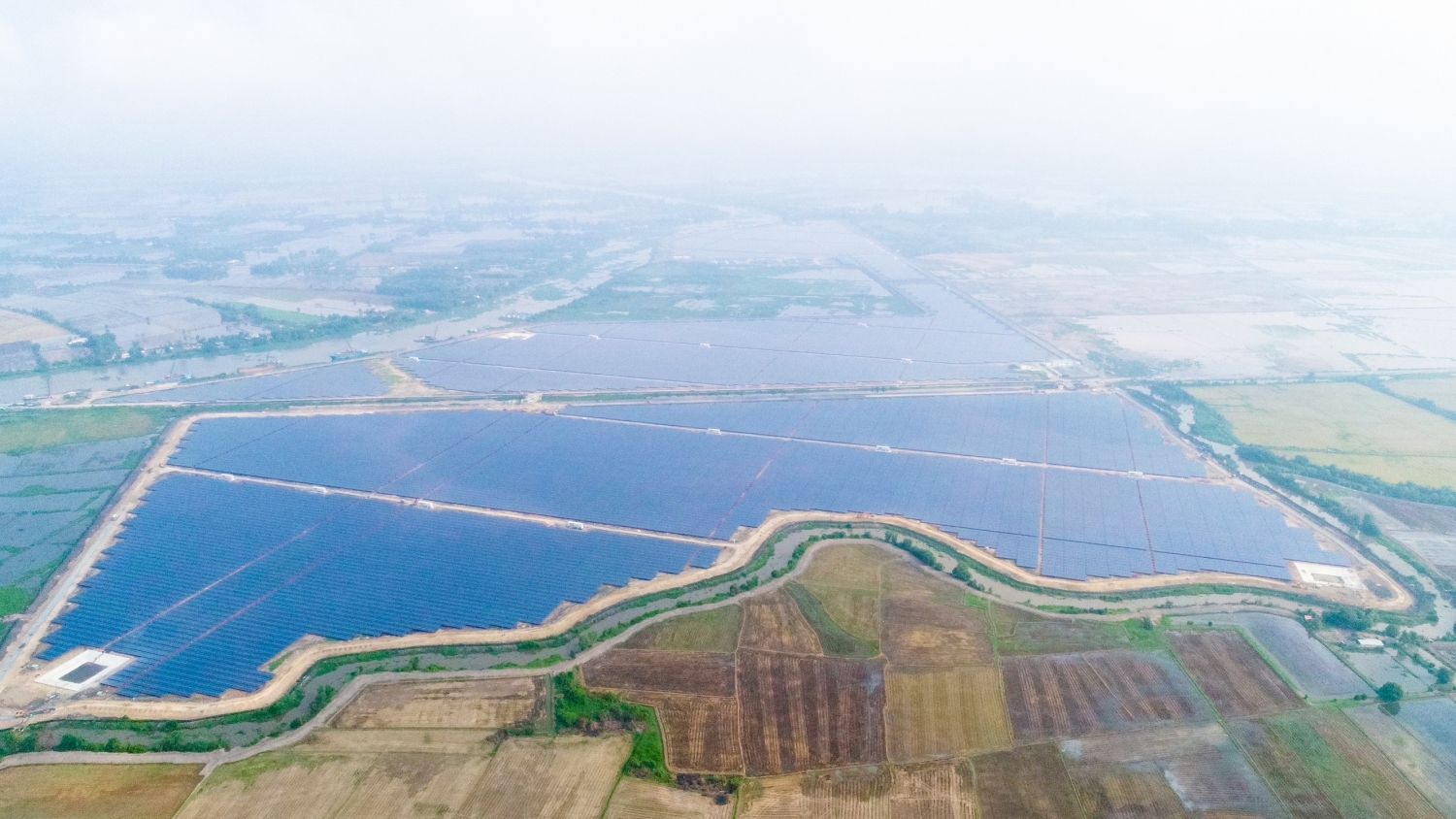
A solar power plant in Tay Ninh Province. With demand for energy increasing, the efficient use of energy and promoting renewable energy have become urgent requirements. (Photo: Courtesy of TTC)
Truong Thanh Hoai, director general of the ministry’s industry department, said the country’s total electricity capacity reached nearly 50,000 MW last year to more or less meet demand.
Vietnam’s power capacity is the second highest among Southeast Asian countries and 30th in the world, he said.
Speaking at a conference on Vietnam’s strategy for developing green energy and energy saving until 2020 in HCM City last Wednesday, Nguyen Phuong Dong, deputy director of the city Department of Industry and Trade, said the growth in energy demand in the country is much higher than in places like Japan and Europe.
“This requires Vietnam to have efficient solutions for energy saving and develop new sources of energy and renewable.”
Hoai said: “The Government has issued policies to encourage the development of renewable energy such as wind, solar and biomass to reduce adverse impacts on the environment and encourage production of energy-efficient devices.”
Nguyen Anh Tuan of the Institute of Energy said: “Vietnam has diverse fossil energy resources like oil, gas and coal as well as renewable energy sources such as biomass, solar and wind.”
Currently hydropower and coal are the largest sources and would remain so in the short term, he told the conference.
Tuan said the Government revised the Power Development Plan for a seventh time in 2016 to increase the share of renewables like biomass, solar and wind to reduce the gap between demand and supply, and is now preparing for an eighth revision.
“The power generation structure has changed with greater reliance on renewable energy.”
As a country with a tropical monsoon, and sun and wind all year round, Vietnam has great potential for developing renewable energy.
Talking about the advantages and challenges related to solar energy generation in HCM City, Nguyen Ngoc Tuong Vi, acting director of the HCM City Power Corporation’s sales department, said the city has great potential for solar power, especially rooftop solar while the Government and the city have policies in place to develop rooftop solar and strong support from the public and businesses.
But the high cost of installing solar rooftop panels discourages people and there are a range of products in terms of origin, quality and warranty, confusing them, she said.
There are no national technical standards or standard specifications related to rooftop solar systems, and no guidelines on dealing with used solar panels and other issues, she said.
She said the Government should soon announce prices for solar power.
To encourage solar power generation, the Government announced that projects connected to the national grid by June 30, 2019, could sell electricity to EVN at 9.35 US cents per kWh, but no information on how much had been revealed, she said.
The Government should also promulgate regulations for recycling used solar panels and national technical standards for rooftop solar, she said.
The conference was held on the sidelines of the International Exhibition on Electrical Technology and Equipment and the International Exhibition on Products, Technologies for Energy Saving and Green Power, which are being held in HCM City from July 17 to 20.


















